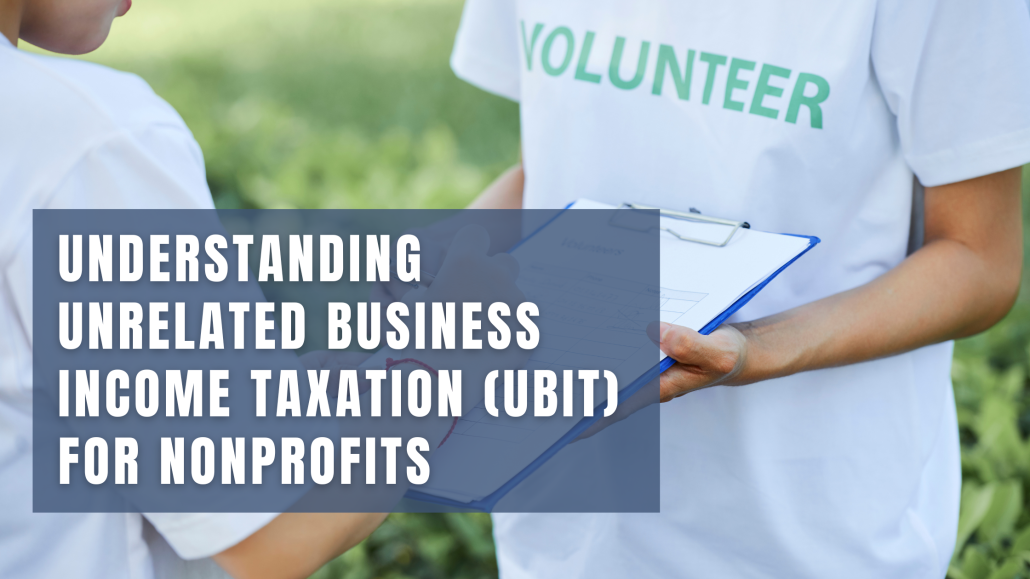
Tax-exemption is one of the cornerstones of operating a nonprofit organization, providing significant financial relief and fostering the community and philanthropic efforts that these organizations undertake. However, it is essential to understand that this tax exemption is not an all-encompassing umbrella, and it has its limits defined by the IRS. One such limitation comes in the form of Unrelated Business Income Taxation (UBIT), which applies to most tax-exempt entities including educational, religious, and social welfare organizations, among others.
What is Unrelated Business Income Taxation?
Instituted by the Congress in 1950, UBIT aims to prevent nonprofits from having an unfair advantage when competing with for-profit entities in the commercial sector. It puts a levy on the income generated from activities unrelated to the core exempt purposes of a nonprofit organization.
To assess whether an income falls under UBIT, three primary criteria need to be met:
- The activity must be a trade or business that produces income through selling goods or services.
- The activity should be carried out on a regular basis, typically more than once a year.
- The business activity should not be substantially related to the entity’s primary exempt purpose.
If all three conditions are satisfied, the income is generally considered unrelated and taxable.
Illustrative Examples of Unrelated Business Income
To further understand UBIT, let us consider the following scenarios:
– A church located next to a sports arena sells parking spaces during games to raise additional funds. Since this activity does not relate to the religious mission, it will be considered unrelated business income.
– A nonprofit purchases a building to further its cause. The unused space in the building is rented to a retailer, making the rental income unrelated business income.
Identifying and Reporting Unrelated Business Income
If a tax-exempt entity generates gross income of $1,000 or more from an unrelated business, it is obligated to complete and submit IRS Form 990-T to report the income and pay the necessary taxes. For organizations anticipating a tax of $500 or more within the year, quarterly estimated tax payments are required, guided by Form 990-W. This is in addition to the annual information return, facilitated through forms like 990, 990-EZ, or 990-PF.
Exceptions to UBIT
While UBIT is applicable to a wide array of tax-exempt organizations, there are exceptions. These include organizations structured under an Act of Congress, and certain trusts that are not subject to private foundation taxes. Moreover, there are modifications and exclusions encompassing a range of activities and income types such as volunteer labor, sale of donated merchandise, certain rental incomes, and bingo games, to mention a few.
Treading Carefully with Unrelated Business Income
While there is no specific threshold, it is necessary for organizations to moderate the level of unrelated business income they accrue. The IRS, considering various unique factors pertinent to each case, retains the discretion to revoke the tax-exempt status if the unrelated business income is deemed excessively high compared to the income derived from exempt operations.
Therefore, it’s imperative for nonprofit organizations to be judicious in their commercial endeavors, ensuring they align with the IRS guidelines detailed in Publication 598 to maintain their tax-exempt status while fulfilling their primary exempt purposes.
Conclusion
Understanding the intricacies of UBIT is vital for the sustained operation and growth of nonprofit organizations. Navigating the complex landscape of tax exemptions requires a careful analysis of the sources of income and adherence to the guidelines set by the IRS. To foster transparency and remain in good standing, organizations must approach unrelated business activities with knowledge and caution, utilizing the resources provided in forms like 990-T and keeping abreast of the rules and exemptions pertaining to UBIT. It is through such responsible operations that nonprofits can continue to work towards their noble goals without the hindrance of tax complications.


